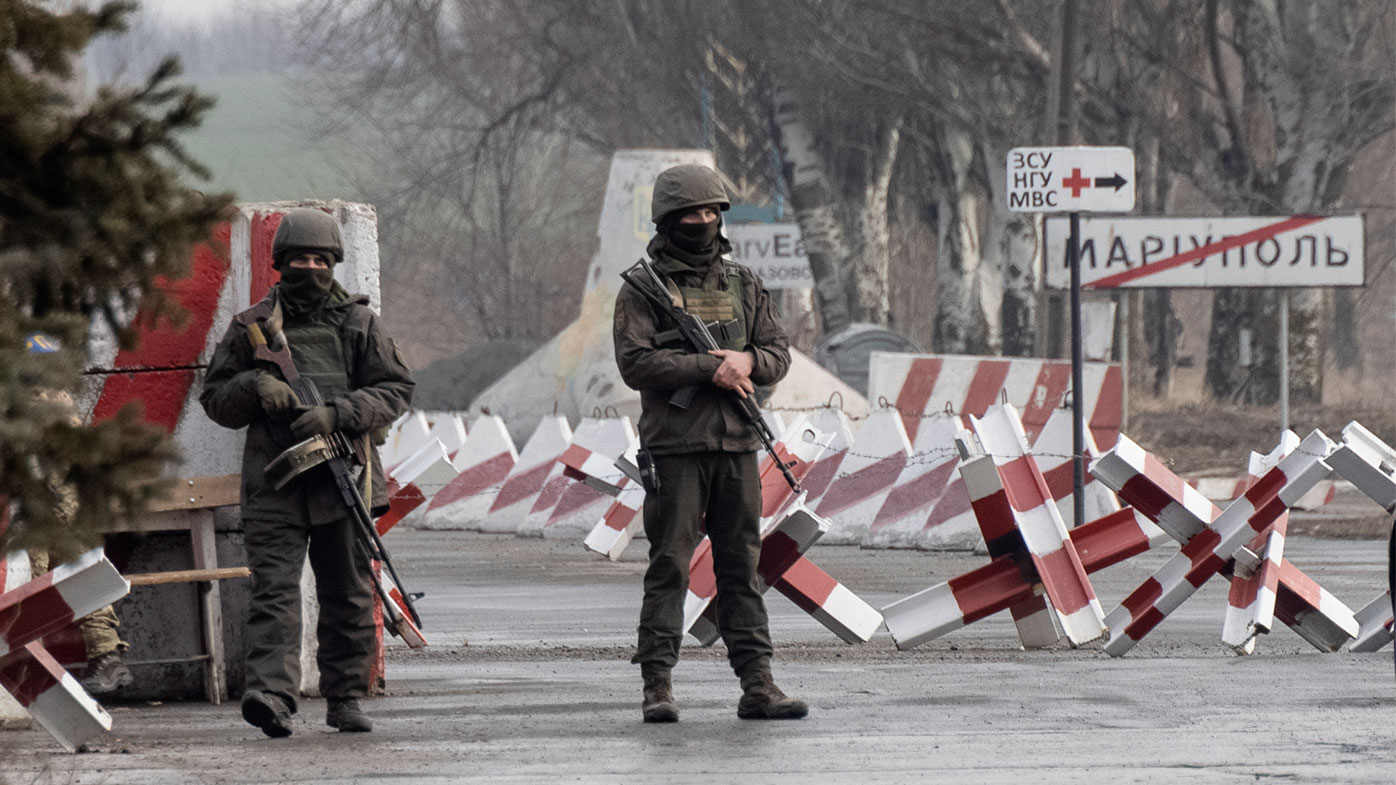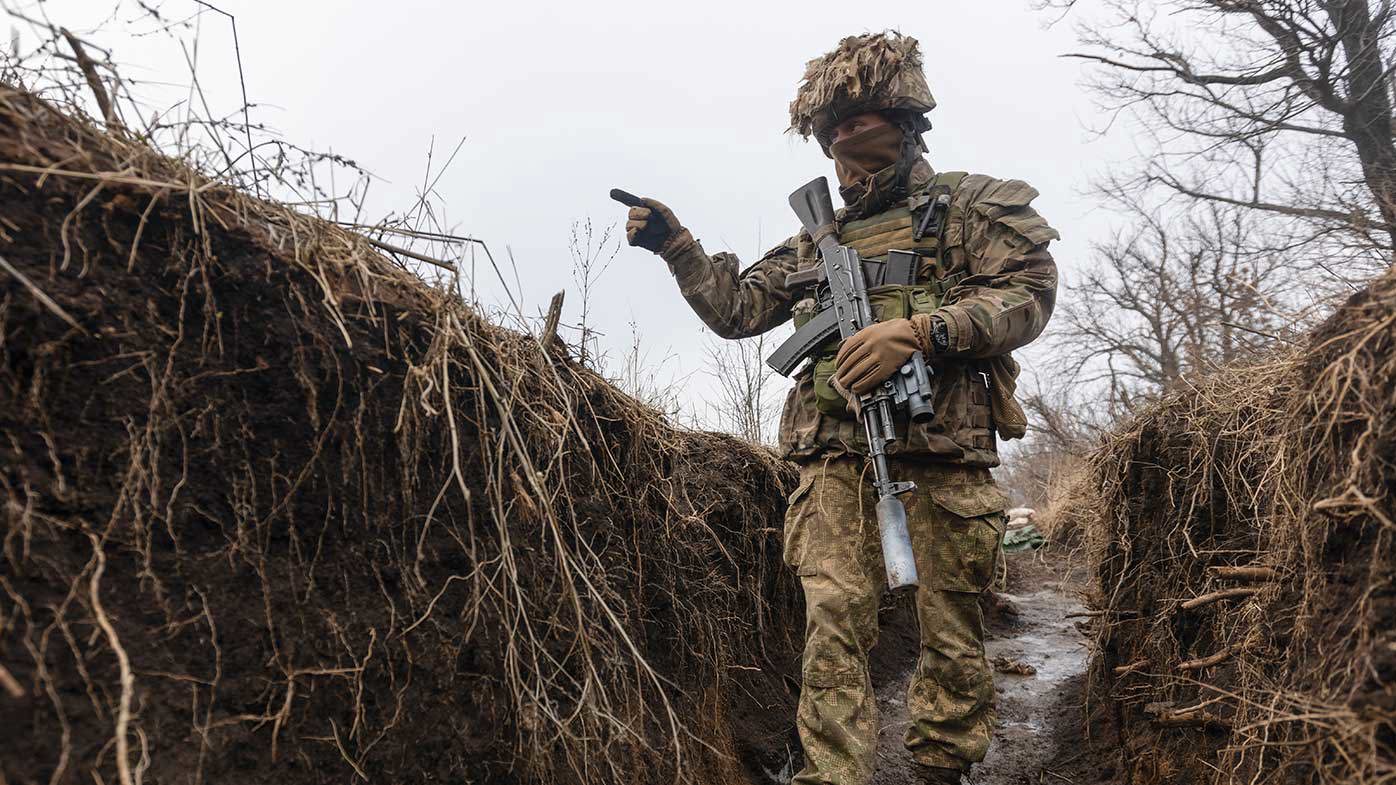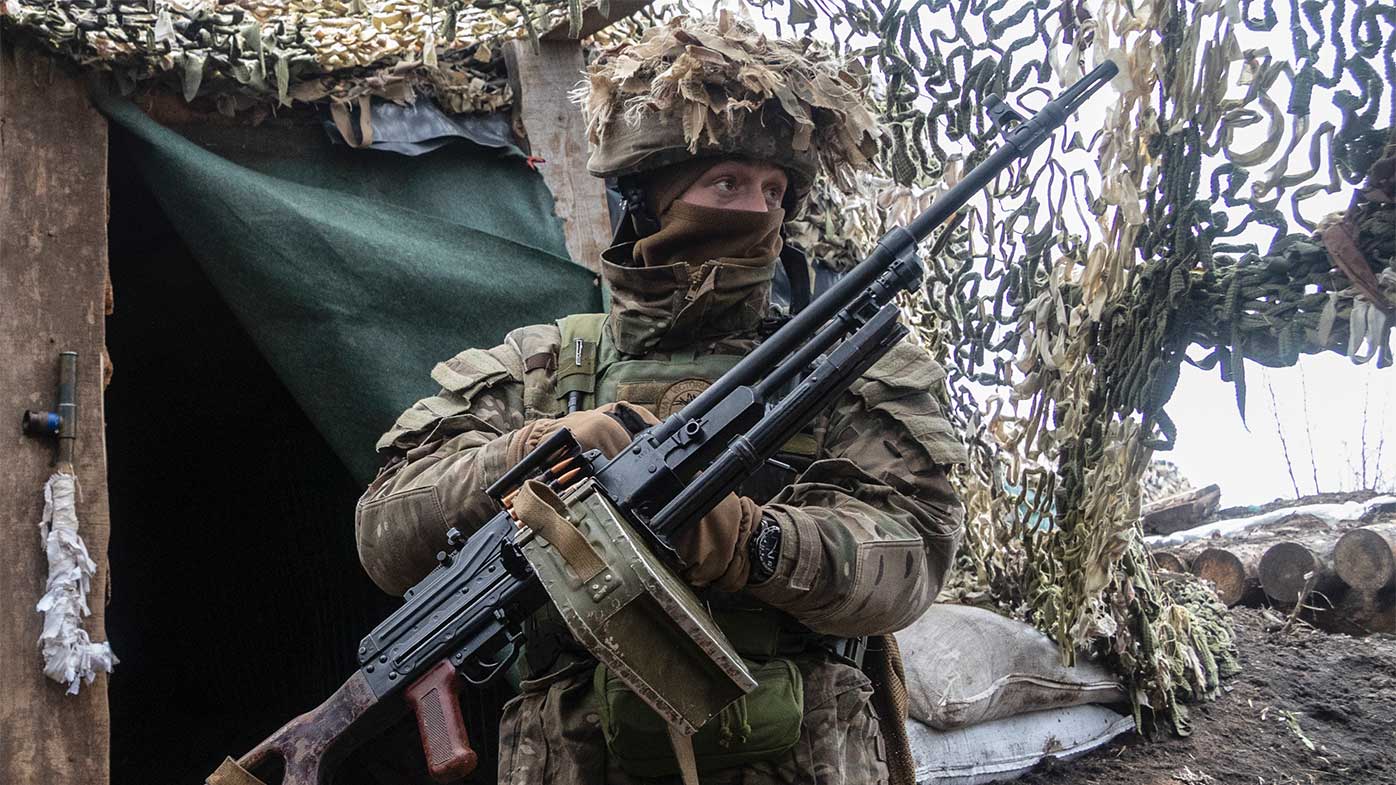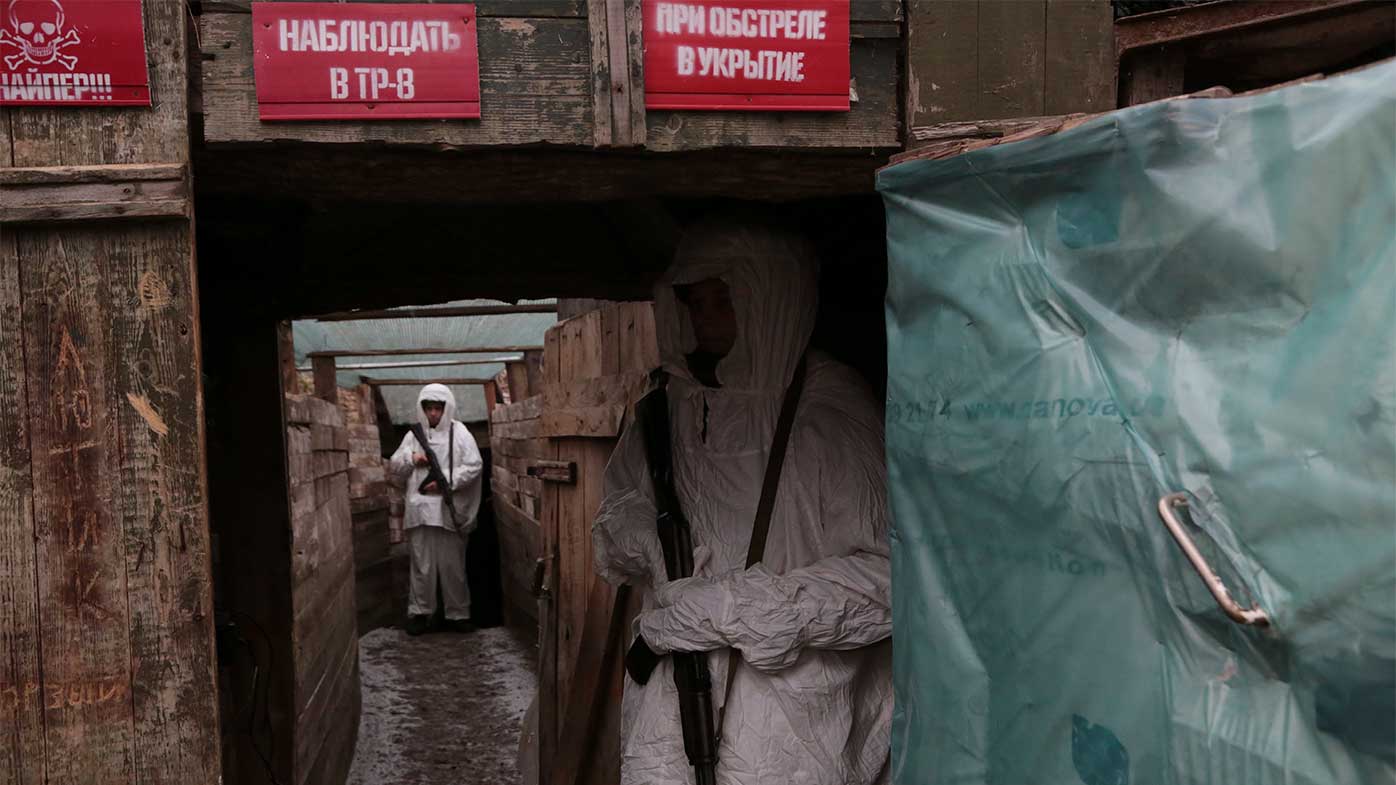Top U.S. and Russian diplomats agreed on Friday to keep talking in the standoff over Ukraine, even though their meeting produced no movement in the crisis that has seen Moscow mass tens of thousands of troops at the border and the West ramp up supplies of weapons to Kyiv.
With fears of an invasion of Ukraine running high and seemingly intractable demands, U.S. Secretary of State Antony Blinken and Russian Foreign Minister Sergey Lavrov met for about 90 minutes in Geneva at what the American said was a “critical moment.”
Expectations were low going in, and there was no breakthrough.
READ MORE: Notebook confession leads FBI to close Gabby Petito case

Mr Blinken told Lavrov the U.S. would give Russia written responses to Moscow’s proposals next week and suggested the two would likely meet again shortly after that — offering some hope that any invasion would be delayed for at least a few more days.
Mr Blinken said the U.S. and its allies remain resolute in rejecting Russia’s most important demands, which were reiterated Friday. Moscow wants NATO to promise that Ukraine will never be added as a member, that no alliance weapons will be deployed near Russian borders, and that it pull back its forces from Central and Eastern Europe.
Despite that, there was no indication the U.S. responses would be any different from the flat-out rejections already expressed by Washington and its allies, clouding future diplomatic efforts.
“We didn’t expect any major breakthroughs to happen today, but I believe we are now on a clearer path to understanding each other’s positions,” Mr Blinken said after the meeting.
Mr Blinken said he also wanted to use the opportunity to share directly with Mr Lavrov some “concrete ideas to address some of the concerns that you have raised, as well as the deep concerns that many of us have about Russia’s actions.”
Mr Blinken said Mr Lavrov repeated Russia’s insistence that it has no plans to invade Ukraine, but the U.S. and its allies were not convinced.
“We’re looking at what is visible to all, and it is deeds and actions and not words that make all the difference,” he said, adding that Russia should remove its troops from the Ukrainian border if it wanted to prove its point.
Mr Lavrov, meanwhile, called the talks “constructive and useful” but declined to characterise the U.S. pledge.
“I can’t say whether we are on the right track or not,” he told reporters.
“We will understand that when we receive the U.S. written response to all of our proposals.”
Mr Blinken suggested there was no leeway on Russia’s demands, saying firmly: “There is no trade space there: None.”
The U.S. and its allies say Russian President Vladimir Putin knows the demands are nonstarters, adding that they’re open to less-dramatic moves.
Mr Blinken said the U.S. would be open to a meeting between Putin and U.S. President Joe Biden, if it would be “useful and productive.” The two have met once in person in Geneva and have had several virtual conversations on Ukraine that have proven largely inconclusive.
READ MORE: Boosters provide the best protection against Omicron variant: study

An estimated 100,000 Russian troops have been sent to areas near Ukraine, and more were moving into the neighbourhood for training exercises with neighbouring Belarus.
Late Friday, the U.S. embassy in Kyiv tweeted photos of a shipment it said had just arrived from the U.S., with “close to 200,000 pounds of lethal aid, including ammunition for the front line defenders of Ukraine.”
Western allies were also supplying weaponry and equipment to Ukraine. Britain sent anti-tank missiles earlier this week, while the defence ministers of the Baltic nations issued a statement saying they received U.S. approval to send Stinger air defence missiles and Javelin anti-tank missiles to strengthen Kyiv's defences.
“Today Ukraine is at the forefront of separating Europe from the military conflict with Russia,” said Estonian Defense Minister Kalle Laanet.
"Let's face it — the war in Ukraine is ongoing and it is important to support Ukraine in every way we can so that they can resist the aggressor.”
The Pentagon said the USS Harry S Truman aircraft carrier and its strike group will participate in a NATO maritime exercise in the Mediterranean, which will continue through February 4 — something that has been planned since 2020, said Pentagon press secretary John Kirby. He said officials considered whether to go ahead with the exercise, because of the ongoing tensions, and decided to move ahead.
Mr Kirby said the exercise wasn’t planned anticipating a Russian move on Ukraine and is “not designed against any of the kinds of scenarios that might happen with respect to Ukraine.”
On Thursday, Russia had announced sweeping naval maneuvers through February, some apparently in the Black Sea.
The U.S. and its allies scrambled to present a united front. Washington and its allies have repeatedly promised consequences such as biting economic sanctions against Russia — though not military action — if it invades.
Mr Blinken repeated that Friday, saying the U.S. and its allies were committed to diplomacy but also committed "if that proves impossible, and Russia decides to pursue aggression against Ukraine, to a united, swift and severe response."
READ MORE: What prison food is like around the world

After the meeting, Mr Blinken spoke by phone with Ukrainian Foreign Minister Dmytro Kuleba to brief him on his talks this week and reaffirm U.S. support for Kyiv’s sovereignty and stress that no decisions would be made without his country’s input, State Department spokesman Ned Price said. He also will brief the foreign ministers of Washington’s European allies.
Biden plans to spend the weekend huddling with his national security team at Camp David, press secretary Jen Psaki said.
In other diplomatic moves, President Sauli Niinistö of Finland said he spoke with Putin by phone on European security and Ukraine, saying it was “imperative to preserve peace in Europe,” according to his office.
President Recep Tayyip Erdogan of NATO member Turkey, which touted its strong ties with Russia and Ukraine, renewed an offer to mediate between the two countries. Mr Erdogan said he plans to visit Kyiv next month, adding that he would also hold talks with Putin.
Ukraine is already beset by conflict. Russia seized control of Ukraine’s Crimea Peninsula in 2014 and backed a separatist insurgency in eastern Ukraine, part of a simmering but largely stalemated conflict that has killed 14,000. Putin faced limited international consequences for those moves, but the West says a new invasion would be different.
Mr Blinken met Ukraine’s president in Kyiv and top diplomats from Britain, France and Germany in Berlin this week.
Mr Blinken's effort to stress U.S. unity with its allies took an apparent hit Wednesday when Biden drew widespread criticism for saying retaliation for Russian aggression in Ukraine would depend on the details and that a “minor incursion” could prompt discord among Western allies.
On Thursday, Biden sought to clarify his comments by cautioning that any Russian troop movements across Ukraine’s border would constitute an invasion and that Moscow would “pay a heavy price” for such an action.

“I’ve been absolutely clear with President Putin,” Biden said.
“He has no misunderstanding: any, any assembled Russian units move across the Ukrainian border, that is an invasion.”
Adding to its warnings, Washington stepped up sanctions Thursday by slapping new measures on four Ukrainian officials who Blinken said were at the centre of a Kremlin effort begun in 2020 to damage Kyiv's ability to “independently function.”
The United States and allies say countries like Ukraine are entitled to their own alliances as part of sovereign security measures, but Mr Lavrov countered that Organisation for Security and Cooperation in Europe have also agreed that no nation can ensure its security by undermining the security of others.
In eastern Ukraine, a soldier stationed near the front line with Russia-backed separatists called Mr Blinken’s visit to Kyiv “very important for our country.” The soldier, who identified himself only by his first name, Serhiy, in line with official rules, voiced hope that if Russia attacked, “we can count on our forces’ and our allies’ power."
